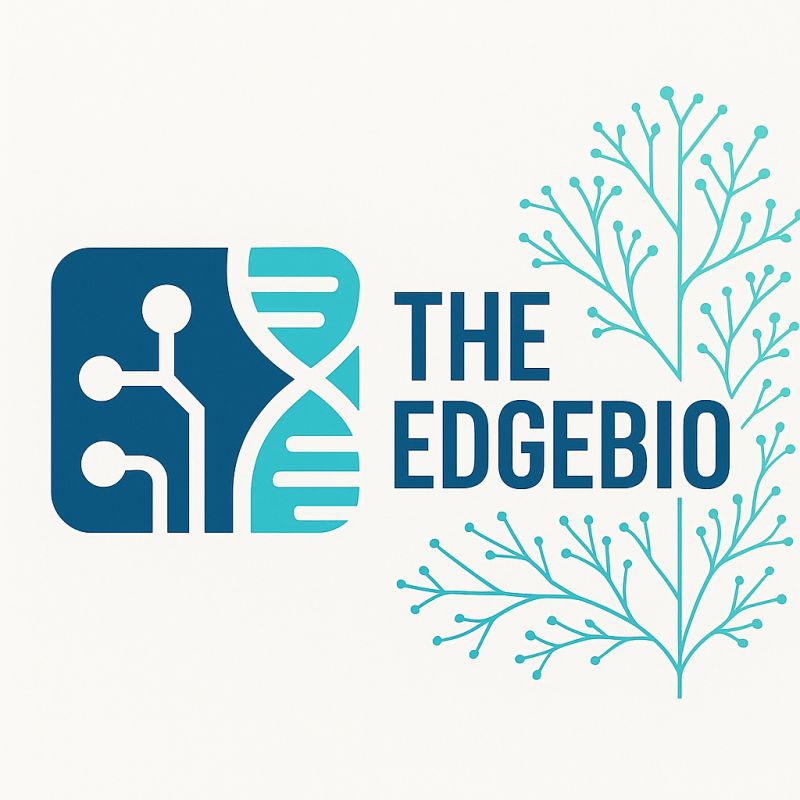
Artificial Intelligence (AI) is no longer a futuristic concept—it’s already revolutionizing life sciences. From accelerating drug discovery to powering personalized medicine, AI is unlocking new dimensions of biological understanding and healthcare innovation. At TheEdgeBio, we dive deep into how AI is shaping the future of biology, biotechnology, and medicine, and what it means for researchers, practitioners, and patients alike.
AI's integration into biosciences is transforming how we understand complex biological systems. With machine learning models now capable of analyzing massive genomic, proteomic, and clinical datasets, scientists can uncover patterns and predictions that were previously impossible.
AI dramatically shortens the timeline for drug discovery. By simulating molecular interactions, predicting protein folding, and identifying potential drug targets, AI platforms help pharmaceutical companies bring effective treatments to market faster and at lower cost.
Through AI, clinicians can now tailor treatments to an individual’s genetic profile, lifestyle, and environment. This shift from one-size-fits-all approaches to personalized therapies is transforming patient care and improving outcomes.
Genomic data is vast and complex. AI enables rapid interpretation of DNA sequences, helping researchers link specific genes to diseases and develop targeted therapies. Tools like DeepVariant and AlphaFold have revolutionized genomics and protein structure prediction.
AI enhances the accuracy of medical imaging analysis by detecting anomalies in X-rays, MRIs, and CT scans with precision often surpassing human experts. This improves early detection and diagnosis of diseases such as cancer and neurological disorders.

AI algorithms can predict health risks before symptoms appear by analyzing wearable device data, EHRs (Electronic Health Records), and patient history. This allows for preventive interventions and more efficient resource allocation in healthcare systems.
While AI brings innovation, it also raises ethical concerns around privacy, bias, and transparency. Ensuring data security, fairness in algorithm design, and regulatory compliance remains a major priority as AI grows in influence.
The biotech startup landscape is being reshaped by AI-driven platforms. Startups like Insilico Medicine and BenevolentAI are leveraging deep learning for novel discoveries in disease biology and treatment pathways, disrupting traditional pharma models.
During global health crises like COVID-19, AI played a crucial role in vaccine design by identifying potential viral targets and simulating immune responses. These capabilities make AI an essential tool in pandemic preparedness.
The convergence of AI and biology is still in its early stages. As AI models become more advanced and data more accessible, we will likely see innovations like AI-generated therapies, robotic labs, and fully automated diagnostics become the norm.
AI is not just complementing biology—it is redefining it. From labs to hospitals, the applications of artificial intelligence in life sciences are vast and rapidly evolving. At TheEdgeBio, we continue to explore and document this exciting frontier, where cutting-edge technology meets the complexity of life.
Our in-depth analysis of immersive technology’s impact on collaboration and design has been featured across top industry platforms. Explore the full article at:
AI is used for analyzing complex biological data, accelerating drug discovery, predicting disease risks, interpreting genomic sequences, and improving diagnostics through advanced medical imaging.
AI enables faster, more accurate research and diagnosis, supports personalized medicine, reduces the time and cost of drug development, and enhances early disease detection and patient care.
Yes. Challenges include data privacy, algorithmic bias, lack of transparency in decision-making ("black box" models), and the need for proper regulation to ensure ethical use and patient safety.
Please send your query or requirements in detail via whatsapp, and we will respond shortly.
Thank you!